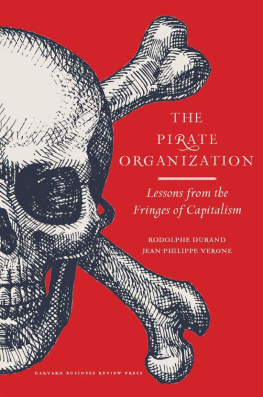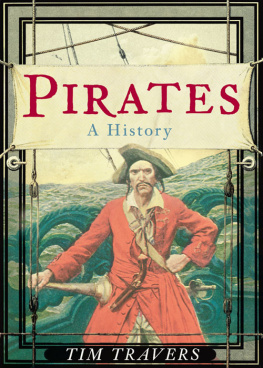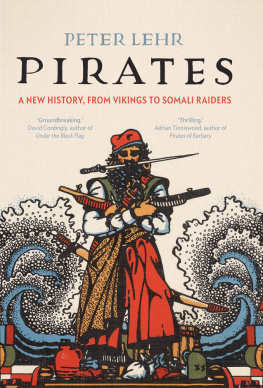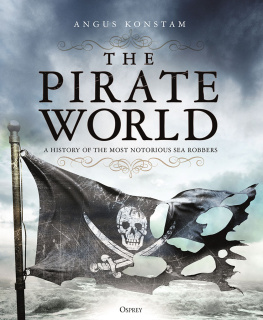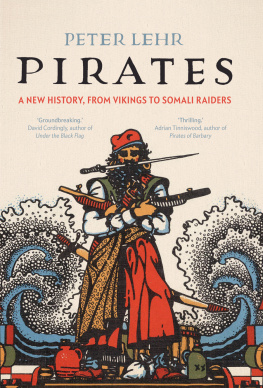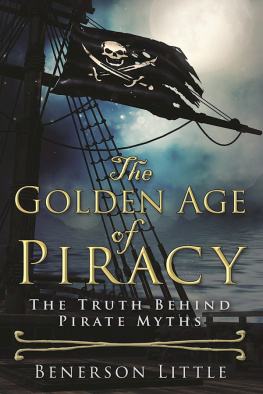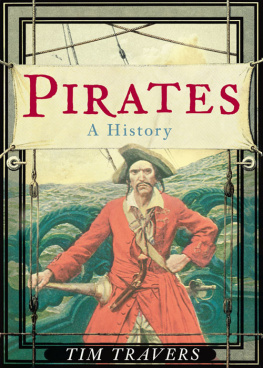THE PIRATE ORGANIZATION

Lessons from the Fringes of Capitalism
RODOLPHE DURAND
JEAN-PHILIPPE VERGNE
HARVARD BUSINESS REVIEW PRESS
Boston, Massachusetts
Copyright 2013 Harvard Business School Publishing Corporation
All rights reserved
Printed in the United States of America
10 9 8 7 6 5 4 3 2 1
No part of this publication may be reproduced, stored in, or introduced into a retrieval system, or transmitted, in any form, or by any means (electronic, mechanical, photocopying, recording, or otherwise), without the prior permission of the publisher. Requests for permission should be directed to , or mailed to Permissions, Harvard Business School Publishing, 60 Harvard Way, Boston, Massachusetts 02163.
The web addresses referenced in this book were live and correct at the time of the books publication but may be subject to change.
First published in French as LOrganisation Pirate: Essai sur lvolution du capitalisme
Mondes Marchands Collections, directed by Benot Heilbrunn
ditions LE BORD DE LEAU 2010
www.editionsbdl.com
33310 Lormont, France
ISBN: 978-2-35687-084-1
Library of Congress Cataloging-in-Publication Data
Durand, Rodolphe.
[Organisation pirate. English]
The pirate organization : lessons from the fringes of capitalism /
Rodolphe Durand and Jean-Philippe Vergne.
p. cm. First published in French as LOrganisation Pirate: Essai sur lvolution du capitalisme. ISBN 978-1-4221-8318-2 (alk. paper) 1. Pirates. 2. Computer hackers. 3. Hacktivism. 4. CapitalismHistory21st century. I. Vergne, Jean-Philippe. II. Title. G535.D8813 2012 364.164dc23
2012025303
To our readers
CONTENTS
PREFACE
The Pirate Organization is not just a book but a broad interdisciplinary project aimed at connecting the social sciences, contemporary artistic creation, and civil society. This book was first published in French in 2010, accompanied by the release of an original musical composition by the experimental rock band Chevreuil. The production of the music was funded from the authors royalties, and the composition was published under a Creative Commons license to allow for a broad diffusion. Tracks for each instrument were and still are available for download separately to facilitate the remixingor hackingof the song.
This extended and updated version of the book, published in English for the first time, is accompanied by a short animation movie directed by Daniel Wyatt and titled What Is the Pirate Organization? It is also published under a Creative Commons license, and the movies soundtrack uses fragments from Chevreuils original music as well as excerpts from remixes of the song sent to us by our readers.
This new version of The Pirate Organization incorporates many of the suggestions we were lucky enough to receive from colleagues, friends, and readers. We are always happy to discuss and receive feedback to refine or expand our ideas, so e-mails and tweets ( @PirateOrg ) are always welcome. Links to the music and movie can be found at http://twitter.com/PirateOrg . Enjoy.
ACKNOWLEDGMENTS
Chevreuil: Tony C. and Julien F.
Eve Chiapello
Annie L. Cot
Thomas Gayno
Benoit Heilbrunn
Thomas Heller
Gregory Jost
Xavier Labatie
PointB Worklodge: Karin and Mark and Margarita ( pointb.org )
Clara Seidl
Social Sciences and Humanities Research Council of Canada
Society and Organizations
( www.societyandorganizations.org )
Tim Sullivan and the whole team at Harvard Business Review Press
Floor van den Born
Jean-Charles Vergne
Jean-Luc Veyssy
Jrme Vidal
Daniel Wyatt
The authors also want to thank their colleagues at HEC Paris, New York University (Stern), and Western University (Ivey) for their friendly support. Many other people made this book possible; they know who they are.
Chapter One
INTRODUCTION
It would be a tremendous story if the author of the mythical text about the rise of capitalism was also the author of a history of pirates. However, this is not simple coincidence . Toshiya Ueno, Piracy Now and Then
Pirates appear at pivotal periods in history. When capitalism began to spread along the trading routes toward the Indies. When radio opened an era of mass communication. When the Internet became part of the global economy. When the biotech revolution began bubbling to the surface. And its no coincidence that these four Golden Ages of piracy correspond to major turning points in the history of capitalism. In fact, we argue, piracy could very well be one of the drivers of capitalisms growth and evolution. Piracy is not random. It is predictable. And it cannot be separated from capitalism.
Many think of piracy as a mere blot on the vast backdrop of history, a subject that deserves only a passing mention in serious studies. In sea tales pirates appear as seafaring heroes, but in our history books they are characters with minor roles. Yet pirates are etched in the collective memory of different places and eras: buccaneers and radio DJs on the sea, cyberpirates on the web and biopirates in the lab, tinkering with DNA, the heart of living organisms.
We use the word pirate to describe such a wide range of actors. But there exists a much deeper relationship between these various forms of piracy. We believe that a shared series of traits, roles, and tactics brings together pirates of all stripes into an organized form we call the pirate organization .
Our research has revealed a number of essential traits shared by all pirates. First, pirates are not solitary heroes who challenge authority out of fury or despair. Rather, they organize themselves into groups, which in some cases grow to several thousand strong. These groups are built to reach specific goals, forge alliances, negotiate with enemies, and engage in conflictthus our focus on the pirate organization.
Like piracy, the scope and nature of capitalism are hard to define. Capitalism is the bedrock of our society, yet it seems to contain the seeds of its own destruction. In political discussions, capitalism proves an easy target because it provides a simple cause for some of our most complex problems. What lurks behind global warming? Capitalism. What triggered the stock market crisis? Capitalism. Chinas meteoric growth? The price of paintings at the last Sothebys auction? The decline of religion and the bland taste of supermarket tomatoes?
It is easy to find loud activists who either hate or love capitalism. Capitalism as a theory has seeped into our public consciousness, but it has become increasingly difficult to agree on the breadth of the term itself and on its dynamics. It is therefore neither by accident nor out of sheer provocation that we wish to explore both piracy and capitalism. We believe that capitalism is in part based on the give-and-take relationship between the pirate organization and the sovereign state, which came about at precisely the same period when capitalism was born. By sketching a theory of the pirate organization, we hope this work serves also as a modest essay on the evolution of capitalism, viewed from its fringes.
Many talented historians have developed unquestionable expertise in maritime piracy. In the near future, a new generation of academics will write the history of cyberpiracy and biopiracy. But given the specialization that is required to study such complex topics, it is unlikely that historians will one day develop a cross-disciplined analysis of all types of piracy. Besides, this is not their role. Economists tend to break down capitalism into a group of variables and indicators that must be arranged and adjusted in order for society to reach its full harmonious potential. Needless to say, piracy is not part of the equationat best it is seen as a discordant ring of negative externalities that must be quelled. And sociologists tend to impose artificial limits on themselves by looking at society through the prism of social class and yet fail to capture the role of the pirate organizations in both market and nonmarket situations.
Next page
